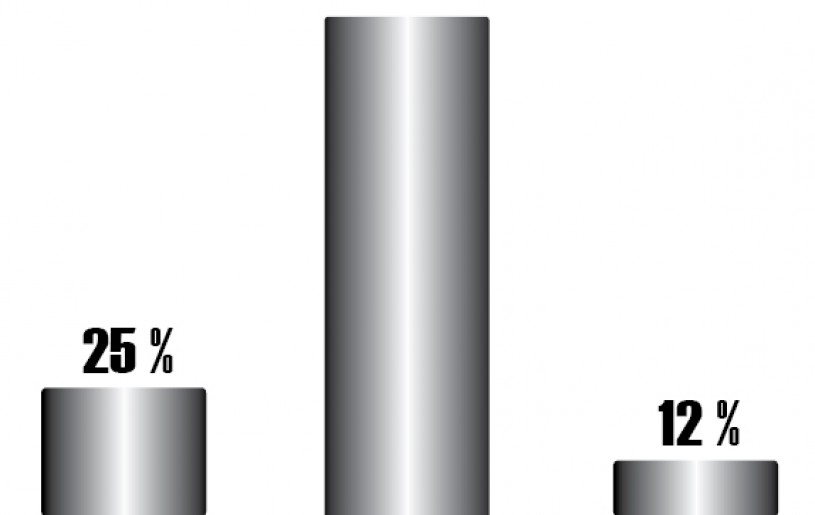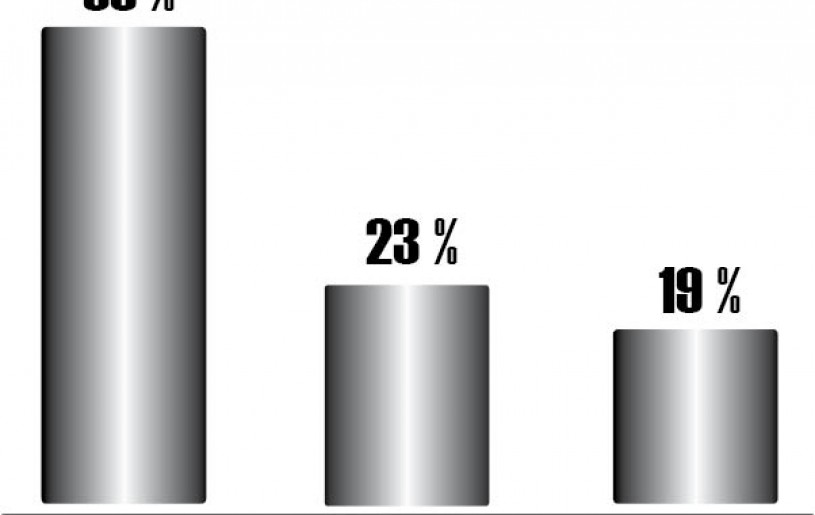
The Compact Oxford Dictionary which I have describes ‘Consumerism’ as “the preoccupation of society with buying goods”. If that is the definition of Consumerism, I have absolutely no hesitation in saying that the present Naga society is a full-fledged consumerist society. Yes, most Nagas are habitual buyers. We don’t engage ourselves in doing productive works but still then we find it hard to withhold ourselves from buying things whether we really need them or not. Be it cars, mobile phones, garments, shoes, kitchen utensils or any other item, most Nagas are unable to control themselves from the temptation if they have the cash for it or if they are in a position to somehow buy through loans etc. Yes, we buy without considering properly whether we really need the things or not and what effect the spending in going to have on our personal finances, mental condition and physical well-being instantly as well as in the long run.
It is true that Nagaland does not have any factory or industry of its own. All the glittering things that we see around us are imports from outside. Even the one or two factories which were introduced by the state government with assistance from the centre are in dismal shape with no sign of any resurrection in the near future. When outsiders come to our land and see our roads jam-packed with cars, they may be impressed upon to think that our land is a very productive and self-sufficient set-up where the people have an independent economic existence. However, on second look, these outsiders will find out that ours is an abnormal society where all that meets the eye (from the smallest needs to the biggest luxuries) have been imported.
Now, some noble and far-sighted Naga leaders conducted the historic and ground –breaking Naga plebiscite in 1951 to prove to the outside world that Nagas are an independent people who do not wish to live under Indian dominion. It is said that when some of this plebiscite volunteers went to a certain village to mobilize the people, a certain man in that village is said to have mockingly commented “Nagas cannot even produce a single matchstick, and here you people are talking about independence”. Whether we like or not, that comment was not without logic. That comment was given more than 65 years ago and nothing has changed even today. Nagas could not make a single matchstick then and today also we don’t produce a single matchstick.
But even though we don’t produce anything, we are expert buyers and consumers. And now, with the introduction of online shopping, we make a giant leap in our shopping spree where we don’t even have to go out but just sit at home and order anything and everything that appeals to our eyes. In this way, many of us live beyond our means. Because of our buying habits, we are unable to save even10 percent of what we earn. We satiate ourselves by buying the things which we can do without and lack behind in the things that really matter. In this way, we have become ‘penny-wise pound foolish’.
Now, if you are wondering what is ‘penny-wise pound foolish’ let me explain. Suppose a man does not mind spending Rs.50,000 to travel by first class air ticket from Guwahati to Mumbai. But upon reaching Mumbai and coming out of the airport, if he starts arguing and quarrelling with a rickshaw driver for a mere Rs.20 to go to his hotel, that is what I mean by “penny-wise pound foolish”. So, in a way, I see many Nagas as ‘penny-wise pound foolish’ because most of us do not mind spending staggering amounts on the things we don’t actually need and can do without. But when it comes to contributing just a small amount that can make a big difference in somebody’s life or that can have a meaningful impact on us all or our society, we are not at all willing and most of the time we try to run away from such situations. Some weeks back, one Naga lady writer had written that after sometime, Nagaland would be filled with piles and piles of used cars. And I fully agree with her. Considering the pace at which we are buying cars now, I have absolutely no doubt that if this buying spree continues our land would become too small not for the people but for the cars. If the actual width of a Naga road is 15 ft, what we get out of that road would be only around 7ft because cars would be parked on both sides of the road. Let us recall that a car can be easily maintained and driven for more than 10 years. And so there is no much point in buying a new car every 3-4 years unless absolutely necessary. This practice is not recommendable economically as well as logically. So we can absolutely save more money and space by making good use of the car which we already have and restraining ourselves from buying new cars unless absolutely necessary.
Today we live in the age of ‘information technology’ and we certainly cannot keep space with the world if we stay aloof from technology. Technological elements like the internet and mobile phones are part of our everyday life today and we cannot do without them anymore. But we also certainly cannot run after technology all the time because new discoveries and advancements are taking place regularly. Just because a new technology is available in the market, it does not mean that we should discard the one which we have in hand and go for the new one. If the one we have in hand can still serve our purpose, we should be contended with it and go for the new one only at the opportune time. Technology can be a blessing or a curse according to the way we see and use it. When we talk about environmental issues, we stress on the need and importance of the three R’s – “Reduce, Reuse and Recycle”. And I think that we should apply the principle of the three R’s not just in environmental issues but also in our daily lives. Rather than unnecessarily consuming more than what is needed, we can make a good deal to ourselves and others by limiting and reducing our consumption. When something we have can be reused to serve our purpose, what is the point in going for a new one by spending money? Likewise when something goes defunct or dysfunctional, it does not mean that a new one is the only option. There is a thing called ‘Repairing’ or ‘Recycling’. If we can find the technicians or experts who can fix our things and make it work again, we should go for it instead of spending on new ones. Without repairing the old one, if one goes for a new one, it will not only cost more money but one also has to deal with the issue of disposing off the old one. So, to make ourselves free from these matters, we should practice the three R’s in our lives. Indeed “simple living and high thinking’ can be the solution to most of our problems.
Most Nagas are also incurable food enthusiasts. Besides our traditional foods that have been passed down to us and which all comes to us now at a price, most of us have unhealthy habits of consuming imported intoxicants like alcohol, tobacco products, betel leaves etc and all these play a huge role in emptying our pockets everyday. Someone rightly said that the things which enter our mouths are the ones that make us poor. Of course, we need to eat to live but we should not live to eat. If we can develop healthy eating habits and stop eating things which are harmful, it can do wonders for us including our budget.
Many of us especially the women also have a weakness for clothes, shoes and other related things. And there is nothing wrong in trying to look good. But beauty is not only about outward appearance. Real beauty comes from inside. Without fancy clothes and shoes also, we can still look good by eating simple foods, doing simple exercises and maintaining a positive attitude. The gospel of Christ also says that our bodies are much more precious than clothes and as believers of Christ we should be more concerned about living a life of integrity rather than wearing costly and fashionable clothes. As is rightly said, “It is not the clothes that make the man but rather it is the man that makes the clothes”. And history does not remember anybody for wearing fancy and costly clothes but history remembers people for their philosophies, their thinking, their ideas and their contributions.
About the buying habits of people, I recently read somewhere, “with the money which we have not earned, we buy the things which we do not need to impress the people whom we don’t like”. I think this is quite applicable in the Naga scenario also. We buy most things for the wrong reasons and we don’t really spend on things that can make a noble difference in our lives or in the lives of others. As such, we are all consumers first rather than contributors. So, we need to bring about drastic changes in the way we think, in the way we live and in the way we spend and buy so that we may see positive changes in our society…





